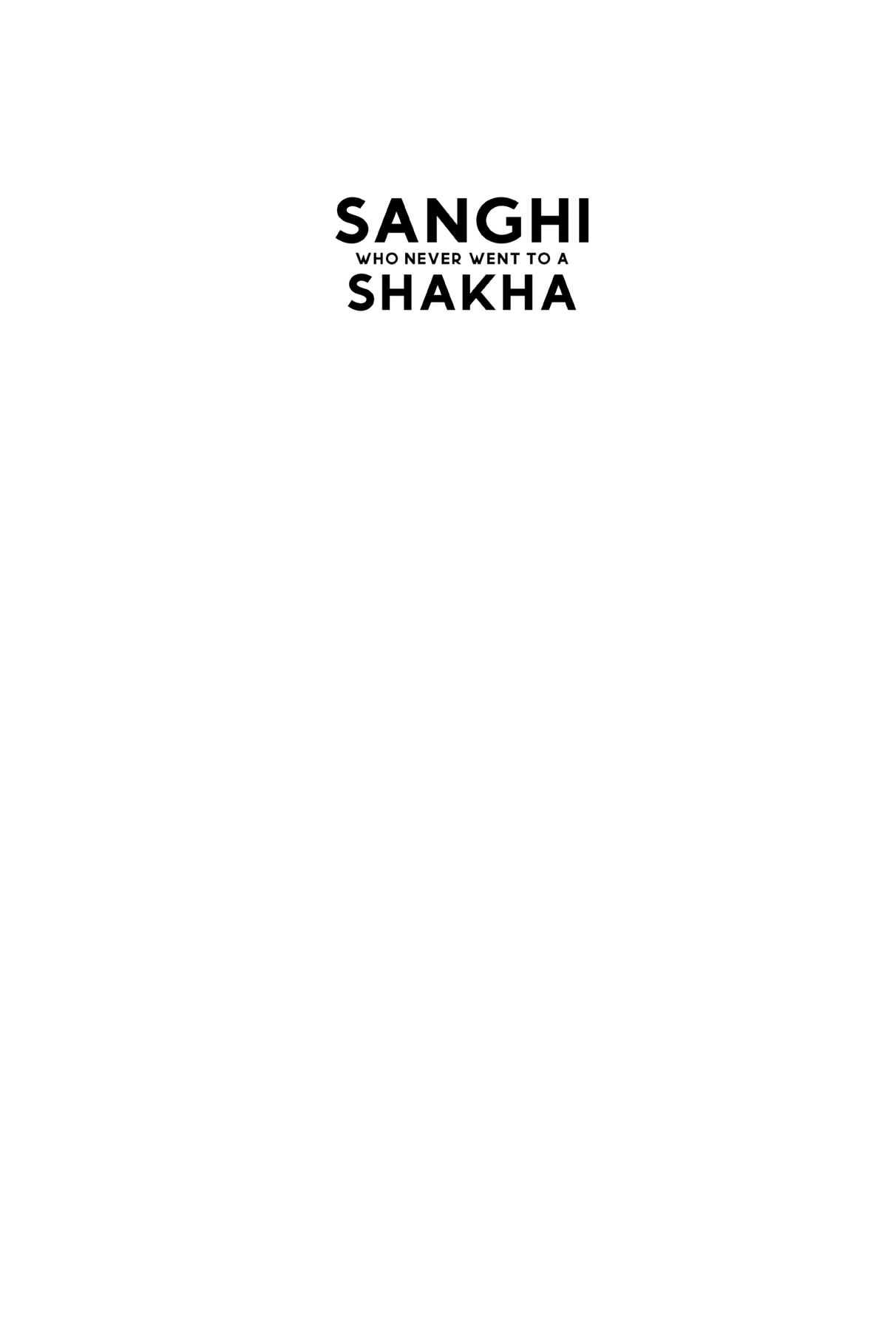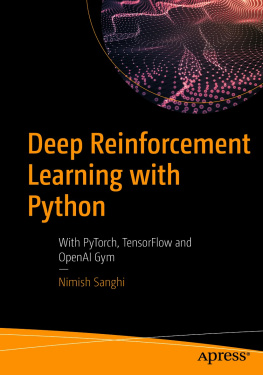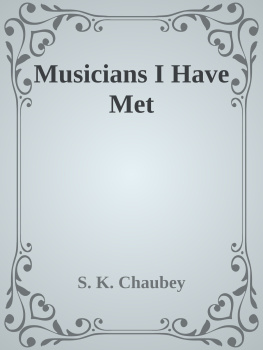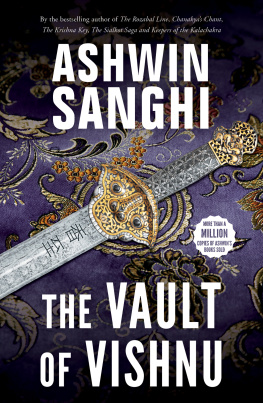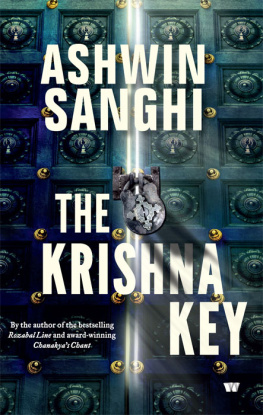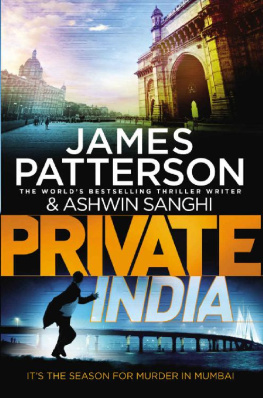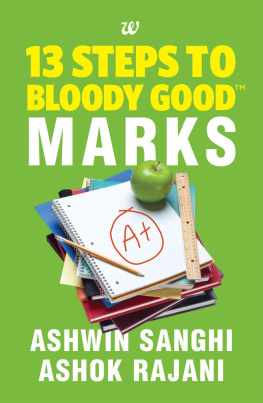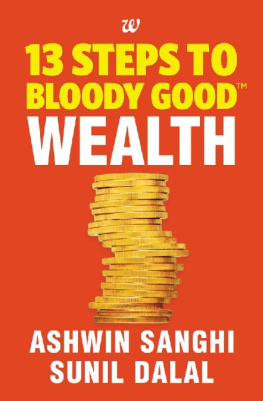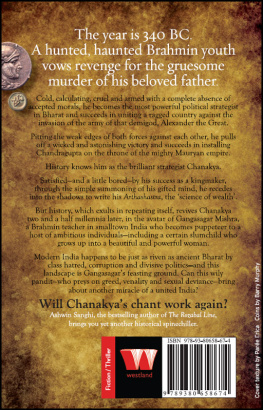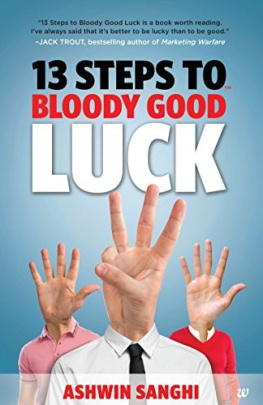Praise for the book
This is a 40-year journey from secular to Hindutva.
You need to cross a certain mental Lakshman Rekha in order to call yourself a Sanghi, given the negative associations the label attracts in secular media. But Rahul Roushan has never been afraid to put himself out on a limb in his voyage of self-discovery and pursuit of political incorrectness.
He has repeatedly been in the line of secular fire for calling out their hypocrisies, first in Faking News , a satirical portal, and later in OpIndia.com, the digital platform he was instrumental in founding. In this book, Roushan mixes the personal with the political to document both the nations and his own journey away from Nehruvian secularism to Hindutva.
It encompasses 30 tumultuous years of the Republic, starting with the first stirrings of change in Hindu society after the Mandal agitation and the movement to build a Ram Temple in Ayodhya, and culminating in the rise of Narendra Modi as Bharats prime minister.
Today, many Hindus no longer see Hindutva as a communal slur, just as Rahul no longer sees the term Sanghi as a handicap, even though he has no illusions about the RSSs strengths and shortcomings. Many Indians have become covert or partial Sanghis; that is, they are in the process of rediscovering their Indic roots.
This book is a must-read for anyone who wants to understand changing India, and emerging Hindutva.
R. Jagannathan (Jaggi) , senior journalist and Editorial Director, Swarajya magazine
Years ago when I came across Faking News , I was struck by the sheer ingenuity and audacity of the person behind this digital spoof show, which took the mickey out of the mainstream media for its predictable, biased and often silly coverage of politics and personalities in India. Curiosity made me seek him out.
That first meeting was revelatory. I had expected a brash young man with an in-your-face attitude. Rahul turned out to be soft-spoken, polite, more of a listener than a speaker and had a beguiling smile. I have closely followed his work since then, especially his tireless efforts to create an alternative, Right-of-Centre platform for news and views.
The story he tells in this book helps readers understand the amazing rise of Narendra Modi, first as CM of Gujarat and now as PM of India, and why he is so crazily popular among the masses.
It explains why and how pink champagne Nehruvian socialism died, taking down along with it the Indian faux liberal elites over-vaulting sense of entitlement. It offers a post-mortem report on the causes that led to the unmourned demise of pseudo-secularism and the loud clamour in its wake for the recognition of Hindu rights.
India is in a deep churn as the masses render the classes irrelevant and a more rooted, more confident, more nationalist new India takes shape and form. To understand the churn that is happening, read this book.
Kanchan Gupta , senior journalist and Distinguished Fellow, ORF (Observer Research Foundation)
I was born into a deeply traditional and religious household. So my worldview began from a different space, compared to those who were born into less religious households. And yet, many of those born in less religious households have rediscovered their ancient Hindu and Indian roots over the last few decades.
I will not comment on the politics of this, but the social movement fascinates me. And theres nobody better to learn this from than Rahul Roushan, who speaks of this journey from his own personal experience. Rahul is a great communicator, but he also possesses deep perceptive intelligence, which he hides behind a wicked sense of humour.
Read this book, and get a microcosmic understanding of the massive social changes taking place in India over the last few decades.
Amish Tripathi , bestselling author and Director, Nehru Centre, London
A book on politics and ideology is often expected to be dry and serious, but this one blends elements of storytelling and political commentary seamlessly. The topic is very interesting and quite relevant to our times, and definitely worth a read. I wish the best to Rahul for his debut book, and hope it is one among many to come.
Anupam Kher , award-winning actor, author and motivational speaker
Why should anyone be interested in Pagal Patrakars story? Because this is not faking news, but real, and the story of an entire generation that questions shibboleths such as socialism, secularism and liberalism (defined in a certain way), which were unquestioningly accepted as axiomatic.
It is this questioning that junked the former ecosystem and brought Narendra Modi and the BJP to power in 2014, and again in 2019. Though junked, the former empire still tries to strike back, and instead of disowning the winds of change, it would benefit from learning how and why Rahul Roushan became a Sanghi who has never been to a shakha.
The book is evocatively written and portrays Indias metamorphosis beautifully, with the underbelly of the former ecosystem also thrown in.
Bibek Debroy , author and Chairman, Prime Ministers Economic Advisory Council
Many of us have been perplexed by the narrative of India being created by certain interests after 2014. Suddenly, India has become intolerant, hyper-nationalist, communal, anti-minority and what not!
In this book, Rahul explores this narrative creation and exposes the forces behind such fake narratives. The book is an eye-opener for all of us on how some vested interests aligned with the ancient regime are trying to create social unrest to suit their need for power.
T.V. Mohandas Pai , leading entrepreneur and investor
A wonderfully whimsical telling of how Indias ideological Right emerged from obscurity to push aside the dominance of the Nehruvian Left, the Marxist Left, the Khan Market Left and every other kind of Left that dominated Indias political economy for decades.
Part personal story and part eye-witness account, Rahul writes in a unique stream-of-consciousness style that gives you the feeling of living the times. Many a newly minted Sanghis will identify with this journey.
Sanjeev Sanyal , bestselling author and economist
At long last a searing personal account that brings to life a journey many have travelled, or have been forced to, but not had the courage to share. Ruthless in its honesty, politically incorrect to its core, this is a book that has to be read by all Indiansyoung or old, haters or admirers, Left or Right, Sanghis or seculars. Roushan has written something that is unputdownable.
Anand Ranganathan , political commentator, author and scientist
The first social media handle that had attracted my attention was that of Pagal Patrakar, that is, Faking News for his understanding of politics. I can guarantee that most people missed the nuances of his narrative, but got a macro idea of where he was trying to lead thema shakha. But this shakha wasnt what one would want to believe. This was the shakha of modern info-war.
The swayamsevaks were mad social media activists. This was a modern war of identity, narrative and Bharat. And Rahul displayed enough pagalpan to be a successful patrakar in this info-war and battle of narrative building. In fact, I have learnt a lot from his political acumen during the many conversations and collaborations I had with him.
This is one of the most important books for the students of politics, media and modern narrative builders. But, above all, this is a very important book for the Left-wingers and Right-wingers to learn what Rahul could see and they couldnt.

